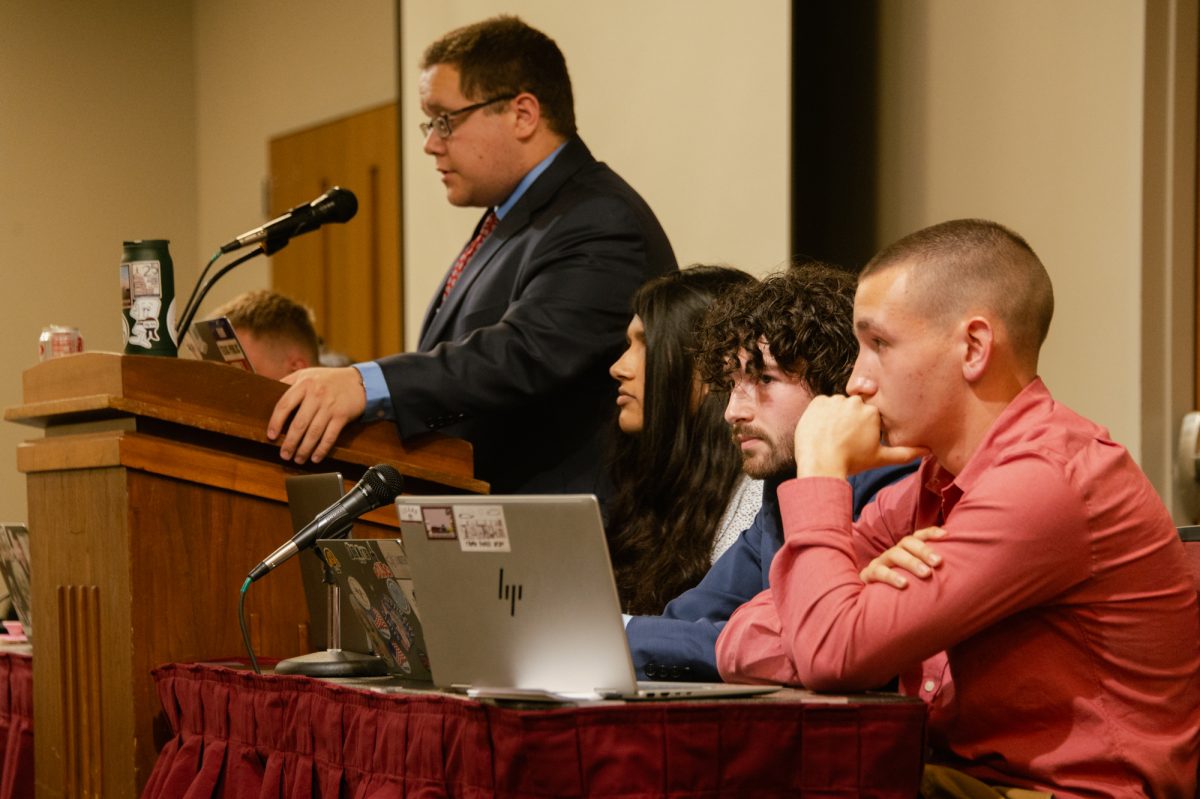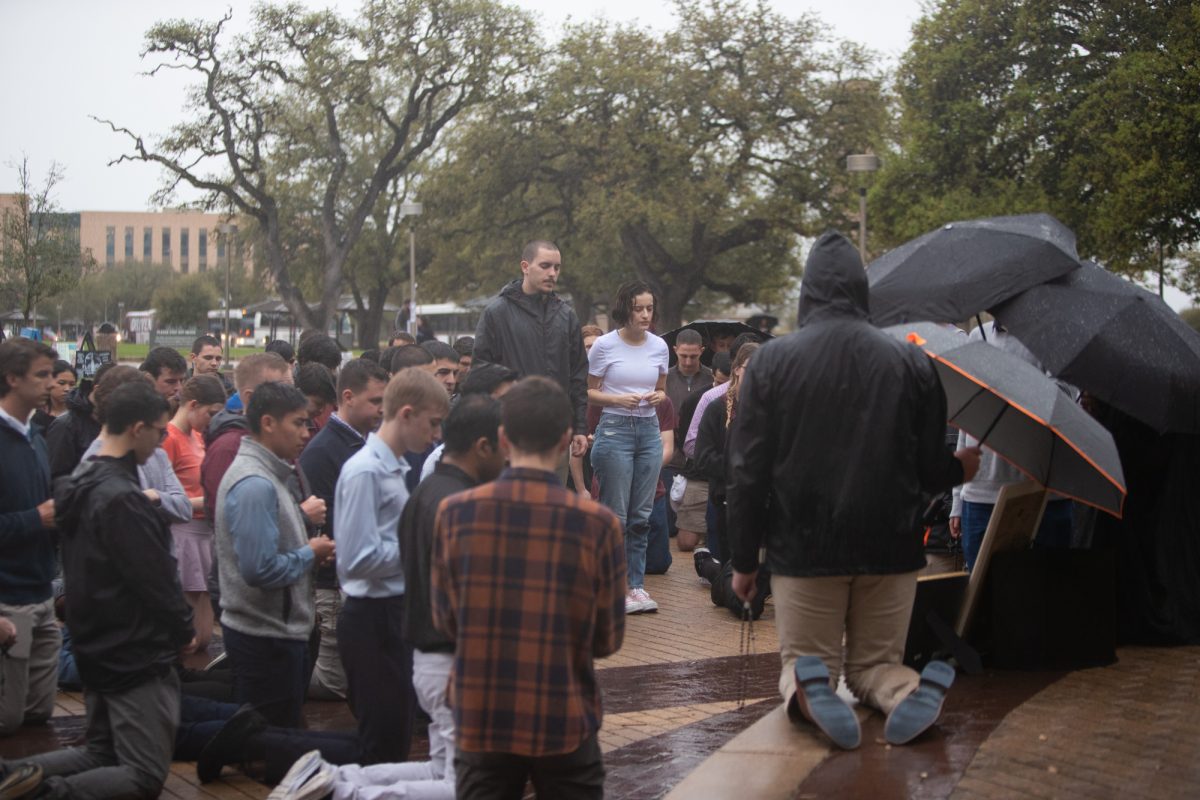Ernest Gaines, a Pulitzer Prize winning novelist, sat quietly sipping his water on stage Thursday night while English professor Pam Mathews told the audience of his many achievements.
After his introduction, Gaines told the audience of the creative process he used in writing his award-winning novel, “A Lesson Before Dying.”
“People always ask me, do I know how to end a novel when I start,” Gaines said. “I like to use the analogy of a train. I know some things, I’ll go to the dining car to eat and the club car to drink, but I don’t know what the weather will be like, or the turns the track will take. I may end up in Philadelphia (when I was headed for New York).”
“A Lesson Before Dying” details the life of a young black man on death row as he prepares to face the electric chair. Set in the South during the 1940s, Jefferson faces prejudice from the white community and feels powerless and less than human as he begins to come to terms with his upcoming execution. Grant, a college educated black man, seeks to give him back a sense of his humanity and dignity despite the hardship he faces.
While Gaines was writing the novel, he said he kept a picture of an electric chair on his desk at all times. His novel was influenced by the true story of a man who was executed a year after his scheduled date, because the generator on the electric chair failed on the first attempt. Gaines spoke to the lawyer who defended the man and still recalls the conversation years later.
“Suddenly (the lawyer) became silent,” he said. “Forty years later, and he still recalled the sound (of the chair).”
Though Gaines said that he had originally planned the story to take place in the 1980s, the parallels between the true case and his story, as well as his background and research about the 40s, caused him to change the time period of the book. He used his own experiences of living on a plantation to help add details to his novel. He explained that there is always room for change in the creative process.
“Writing for me is discovery,” Gaines said. “If I knew what happened in the book I’m afraid writing it would be boring.”
Gaines said he seeks to instill in his characters a sense of morals and values to help himself and his readers hold similar principles.
“I try to create characters with character, to help develop my own character and my readers’,” Gaines said.
Christa Vanhorne, a sophomore English major, enjoyed hearing Gaines read from his book.
“I liked (the book) a lot,” Vanhorne said.
John Belk, a sophomore English major, said that the book meant a lot to him.
“I loved it,” he said. “I thought it was phenomenal.”
Gaines feels that his book should appeal to all Americans, and he said he had no definite audience in mind.
“I try to write a decent novel, not just for black Americans but for all Americans,” Gaines said. “That’s all any writer tries to do, write a little about the place you come from.”
Gaines shares novel process
April 29, 2005
0
Donate to The Battalion
$2065
$5000
Contributed
Our Goal
Your donation will support the student journalists of Texas A&M University - College Station. Your contribution will allow us to purchase equipment and cover our annual website hosting costs, in addition to paying freelance staffers for their work, travel costs for coverage and more!
More to Discover









